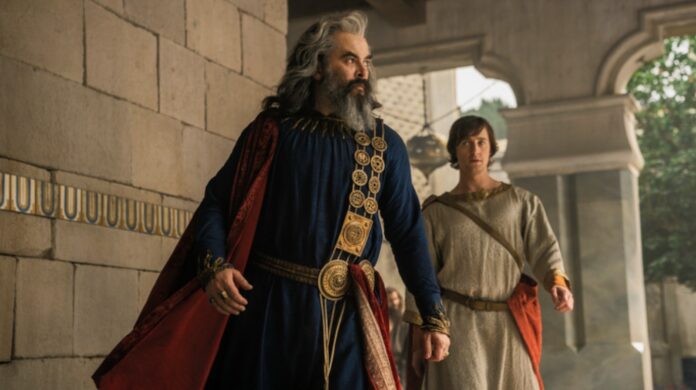Anyone who’s familiar with Middle-earth lore knows that Pharazôn is by no means a good guy, and it’s become pretty apparent for show-watchers too. He’s already expressed disturbing anti-elf sentiments, and generally seems more scheme-inclined than the rest of these mostly heroic characters. But this moment feels like a turning point for his character, a bit like the part of “Game of Thrones” where Cersei Lannister describes the bloody quest for power that gives the series its title. He tells his son he’s following the turn of the tide, but then calmly, coolly reveals his plan to rule over elves and men. If he appeals to the little people, he argues, he and his allies will ultimately benefit economically when trade is impacted by war.
Like everything in “Lord of the Rings: The Rings of Power,” the details of Pharazôn’s slow descent into villainy will no doubt irritate some professed fans of J.R.R. Tolkien’s works, despite it being discussed in texts including “Unfinished Tales” and “The History of Middle-earth.” I’ll admit I was initially wary of the tilt toward courtly drama in the show, because while politics undoubtedly is a part of Middle-earth history, I’m one of many fantasy fans who’s still feeling “Game of Thrones” fatigue. As such, the harfoot misadventures and shiny, pretty world building of the show’s first episodes really felt like a balm to my “Thrones”-addled soul.



















![[Book Review] The Blade Itself (The First Law Trilogy) by Joe Abercrombie](https://bendthekneegot.com/wp-content/uploads/2018/01/1516047103_maxresdefault-218x150.jpg)

















